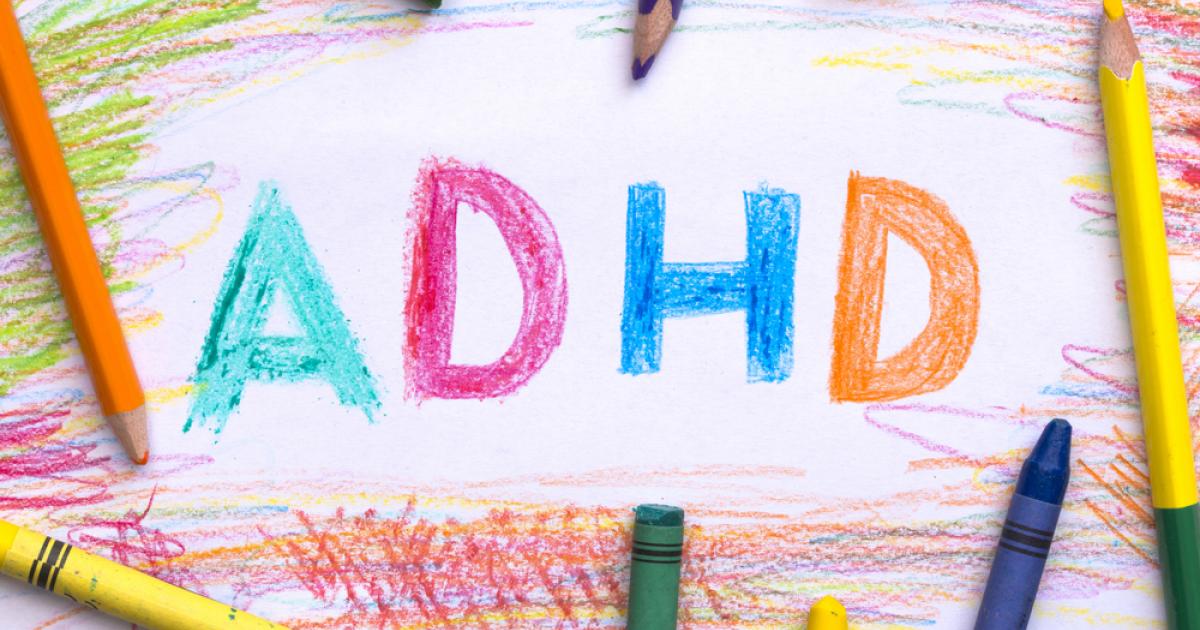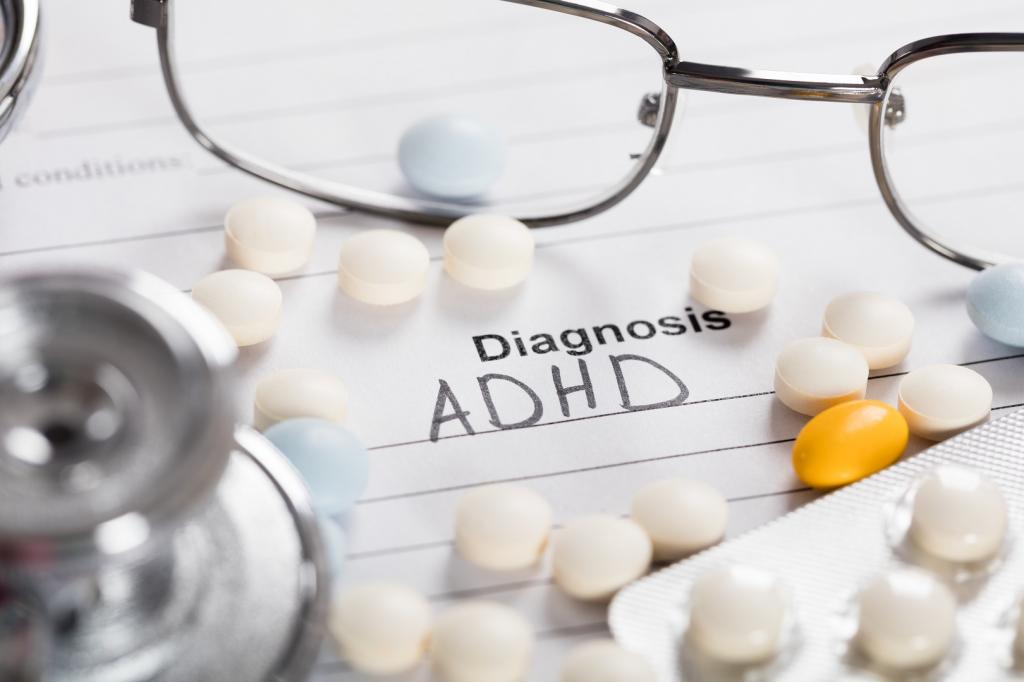ADHD: Navigating the Chaos and Finding Balance
ADHD, or Attention-Deficit/Hyperactivity Disorder, is a neurodevelopmental disorder that affects both children and adults. Characterized by persistent patterns of inattention, impulsivity, or hyperactivity, it can often feel like navigating through a storm. The chaos of racing thoughts, impulsivity, and constant distractions can be overwhelming, making everyday tasks a challenge.
Living with ADHD is like being in a movie where the scenes change rapidly and without warning. One moment you're focused on a task, and the next, your attention is pulled in a different direction. This constant shifting can be exhausting and disorienting, leading to feelings of frustration and inadequacy.
But here's the good news: ADHD is not a sentence to a life of chaos. With the right strategies and support, it's possible to navigate the storm and find balance. It's about learning to manage the symptoms, harness the strengths, and adapt the environment in a way that works for you.
ADHD Medication
Medication is often a key component in managing ADHD. It can help reduce symptoms, improve focus, and make it easier to navigate daily life. However, it's not a one-size-fits-all solution. The effectiveness of ADHD medication can vary from person to person, and it's important to work closely with a healthcare provider to find the right medication and dosage.
Stimulants are the most commonly prescribed medications for ADHD. They work by increasing the levels of certain chemicals in the brain that help with focus and attention. Non-stimulant medications are also available and can be a good option for those who can't tolerate stimulants or for whom stimulants aren't effective.
While medication can be a powerful tool, it's not the only strategy for managing ADHD. Lifestyle changes, therapy, and support can also play crucial roles in managing ADHD symptoms and improving quality of life.
Debunking Adult ADHD Myths: Unraveling the Truth
Attention Deficit Hyperactivity Disorder (ADHD) is a neurological condition frequently associated with children. However, the reach of ADHD extends far beyond childhood, affecting numerous adults in various aspects of their daily lives. Despite its widespread prevalence, numerous misconceptions and myths abound concerning adult ADHD. These misinterpretations can lead to stigma, misunderstanding, and lack of effective support for those affected. In this detailed exploration, we aim to debunk these prevalent myths, reveal the reality about adult ADHD, and promote a better, more informed understanding of this complex condition.
1. Myth: ADHD Only Affects Children
The belief that ADHD only impacts children and that they eventually outgrow it as they mature is one of the most common myths about this condition. The reality is that while ADHD symptoms may change and evolve with age, many individuals continue to experience these symptoms into adulthood. Studies estimate that about 60% of children with ADHD become adults with ADHD, indicating that this condition is not solely a childhood disorder.
2. Myth: Adults with ADHD are Just Lazy
Another pervasive myth suggests that adults with ADHD are merely lazy or lack discipline and willpower. ADHD is a neurological condition that affects an individual's ability to concentrate, stay organized, and complete tasks. Labeling these challenges as laziness does a disservice to the individuals who live with ADHD every day. It is essential to distinguish between a lack of effort and the symptoms of a legitimate medical condition.
3. Myth: ADHD is Not a Real Disorder
Despite substantial scientific evidence and recognition from medical communities worldwide, some still assert that ADHD is not a legitimate medical disorder. This myth not only perpetuates misinformation but also contributes to the stigma surrounding ADHD, making it more difficult for adults with ADHD to seek help and receive understanding and support from others.
4. Myth: Medication is the Only Solution for Adult ADHD
While medication can be a significant component in managing ADHD symptoms, it's not the only solution. Comprehensive ADHD treatment often includes behavioral therapies, coaching, self-care practices like regular exercise and proper nutrition, and workplace and educational accommodations. Moreover, each individual's treatment plan must be personalized to their unique set of symptoms and life circumstances.
5. Myth: Adults with ADHD are Just Seeking Attention
The behavioral symptoms of ADHD, like impulsivity or restlessness, are often misunderstood as attempts to seek attention. This myth overlooks the genuine struggles faced by adults with ADHD and downplays the reality of their condition. These behaviors are part of the disorder, not a call for attention.
How to Manage ADHD?
Attention Deficit Hyperactivity Disorder (ADHD) is a neurological condition that impacts various facets of life, from academic performance to personal relationships. While medication is often a part of managing ADHD, it's not the whole picture. Effective ADHD management also requires implementing practical strategies that improve functioning and coping skills. Here, we'll delve deeper into these strategies and provide a more comprehensive approach to managing ADHD.
- Establishing a Consistent Routine: Creating Structure and Predictability
One of the keys to managing ADHD is developing a consistent daily routine. Routine provides structure, reduces uncertainty, and can help individuals with ADHD better manage their tasks and responsibilities. This structure can help guide individuals through their day, from morning routines to work or school schedules, and evening wind-down activities. It's important to break larger tasks into smaller, manageable parts, and allocate specific time slots for each task. Having a visual representation of the routine, like a chart or board, can also be beneficial.
- Staying Organized: Harnessing the Power of Tools and Systems
Organizational skills can often be a challenge for individuals with ADHD, making it difficult to stay on top of tasks, deadlines, and commitments. Implementing organizational tools can be incredibly beneficial. Calendars, planners, to-do lists, reminder apps, and note-taking tools can help manage tasks, keep track of deadlines, and ensure nothing slips through the cracks. Color coding and labeling can also be useful for managing paperwork or tasks.
- Regular Exercise: The Mind-Body Connection
Physical activity plays a pivotal role in managing ADHD symptoms. Regular exercise can enhance concentration, reduce impulsivity, and improve mood by boosting endorphin levels. Whether it's a brisk walk, a run, yoga, or a team sport, find an activity that you enjoy and make it a part of your routine. Even brief periods of exercise, like a 10-minute walk, can yield immediate benefits for focus and mood.
- Eating a Healthy Diet: The Role of Nutrition in ADHD
Nutrition plays a significant role in managing ADHD. Some foods may exacerbate ADHD symptoms, while others can help manage them. A balanced diet rich in fruits, vegetables, lean proteins, whole grains, and omega-3 fatty acids can support brain health and improve symptoms. Avoid foods high in sugar and artificial additives, as they can increase hyperactivity and make it harder to focus.
- Ensuring Adequate Sleep: The Importance of Rest
Sleep difficulties are common among individuals with ADHD, and lack of sleep can further exacerbate ADHD symptoms. Establishing good sleep hygiene is crucial. Aim for 7-9 hours of sleep per night. A consistent sleep schedule, a quiet and dark sleep environment, and winding down activities before bed can help improve sleep quality. If sleep difficulties persist, it may be helpful to consult a healthcare provider.
- Practicing Mindfulness: Managing Stress and Enhancing Focus
Mindfulness techniques like meditation, deep breathing, and yoga can help manage stress and improve focus. By focusing on the present moment, individuals with ADHD can reduce anxiety, improve emotional regulation, and enhance their ability to concentrate. There are many resources available, including apps and online tutorials, to help you start and maintain a mindfulness practice.
- Seeking Support: The Value of Connection and Community
Support from therapists, coaches, support groups, friends, and family can provide invaluable tools and strategies for managing ADHD. Therapy can help individuals develop coping strategies, improve organizational skills, and manage associated emotional challenges. ADHD coaches can provide personalized strategies for managing daily tasks and challenges. Support groups offer a safe space to connect with others who understand the experience of living with ADHD and can offer empathy, advice, and encouragement.
ADHD in Relationships
ADHD can have a significant impact on relationships. The symptoms of ADHD, such as impulsivity, forgetfulness, and difficulty with focus, can create challenges in communication and understanding. However, with awareness and strategies, it's possible to navigate these challenges and build strong, healthy relationships.
Understanding and empathy are key. It's important for both partners to understand how ADHD affects behavior and to communicate openly about challenges and needs. Strategies such as setting clear expectations, creating routines, and using reminders can help manage potential areas of conflict.
Therapy can also be beneficial. Couples therapy, in particular, can provide tools and strategies for managing ADHD in a relationship context. It can help couples understand each other better, improve communication, and find strategies to manage ADHD symptoms together.
Conclusion:
In conclusion, navigating the chaos of ADHD and finding balance is not a destination, but a journey. It involves understanding the role of medication, developing strategies to manage symptoms, and navigating the impact of ADHD on relationships. It's about learning to live with ADHD, not against it.
With the right tools and support, it's possible to manage ADHD effectively and live a balanced, fulfilling life. It's about finding strategies that work for you, whether that's medication, therapy, lifestyle changes, or a combination of these. It's about understanding your unique ADHD experience and tailoring your management strategies to fit your needs.
ADHD can be a challenge, but it can also be a journey of self-discovery and growth. So, embrace the journey, seek support when you need it, and remember that you have the strength and resilience to navigate the chaos and find balance.







